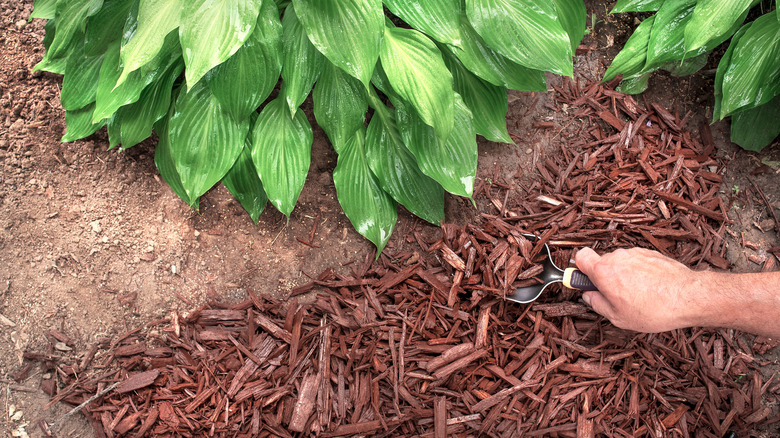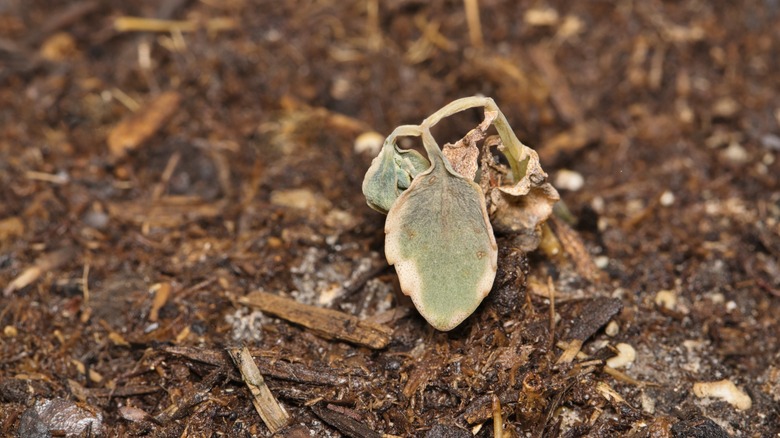Why You Should Avoid Using Fresh Mulch In Your Garden
There are various reasons why you should use mulch in your garden. For starters, mulch discourages weed growth, preventing them from establishing their kingdom amongst your plants. Further, mulch helps the soil retain moisture and conserve water. It even promotes the growth of healthy plants by nourishing the soil as it decomposes, stopping soil erosion, protecting plants against harsh weather conditions, and attracting soil-building organisms like earthworms. All in all, mulch is a much-needed component for your garden, but using fresh mulch may have more disadvantages than benefits.
You should avoid using fresh mulch — such as manure and shredded bush — as they might contain weed seeds and herbicide remnants that can actually give free rein to weeds in your garden or cause your plants to wither and die. Similarly, you should avoid using fresh wood chips as mulch in your garden as they're mostly rich in carbon and utilize the soil's nitrogen to decompose, robbing your plants of this nutrient.
Fresh mulch causes nitrogen deficiency in your plants
Applying fresh mulch around your plants, especially young and tender ones, is a mulching mistake and can be harmful, as it will use up the nitrogen from the surrounding soil and plant roots in its haste to decompose. Robbed of nitrogen, your plants will begin wilting and drooping. Moreover, their growth will be affected, and their leaves will turn yellow. To avoid this mishap, allowing the fresh mulch to weather for a couple of months, or even a year, can work wonders for your plants.
But if you'd rather not wait, you must combine organic nitrogen sources with fresh mulch before using them near your plants. This will allow both your plants and the mulch to have access to plenty of nitrogen. For instance, if you'd like to use fresh wood chips as mulch, consider adding nitrogen-rich organic materials, such as compost, shredded leaves, twigs, and moss, or nitrogen-rich fertilizers, before employing them to promote plant growth.

